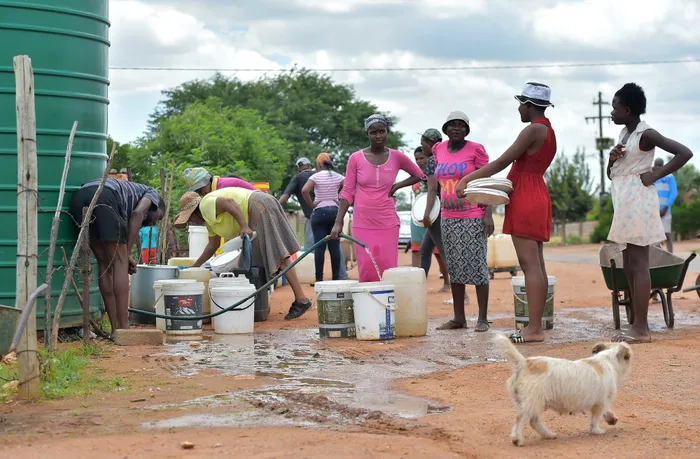
Tshwane struggles with significant non-technical water losses, amounting to 39%, largely attributed to theft and unbilled water usage.
Image: Oupa Mokoena / Independent Newspapers
The City of Tshwane is grappling with a huge challenge of non-technical water losses, standing at 39%, primarily due to theft and unbilled water usage.
Region One, which includes Soshanguve, Rosslyn, Ga-Rankuwa, and Mabopane, accounts for a substantial 50% of these losses.
Vuyo Zitumane, chief operations officer, said the city's main challenge is non-technical water losses, followed by technical losses due to aged infrastructure.
"The newest city asset for both electricity and water is more than 50 years old," she said.
To address the issue, Tshwane has partnered with the City of Aarhus in Denmark, focusing on leak repairs.
The city has also signed a memorandum of understanding with Rand Water to assist with leak detection and pipe replacement.
According to the city's master plan, R2 billion is required for pipe replacement and to reduce water losses. However, due to financial constraints, the city only receives 25% of the necessary funds.
To overcome this challenge, the city is exploring alternative solutions, including private sector partnerships.
Zitumane noted that the city currently owns 20% of its water sources and is focusing on augmenting its own sources to reduce its heavy reliance on Rand Water.
"We have started at Rooiwal wastewater treatment plant and they (Rand Water) are there to assist us with operations and maintenance so that those plants can produce at maximum capacity," she said.
The city targets a 2% annual reduction in water losses based on financial contributions and has made significant improvements in electricity losses, reducing them to 17%.
To tackle electricity theft, the city plans to identify occupants of properties with bulk infrastructure, even if they lack title deeds, and issue them certificates of occupancy.
By formalising these occupants and providing them with essential services like electricity, the city aims to encourage payment and reduce theft.
"We will extend electricity because it is inevitable that they are going to steal. If we give it and formalise them, they are going to pay," Zitumane said.
The Auditor-General of South Africa has flagged R1.3 billion in losses due to water and R2.5 losses of electricity issues during the 2023/24 financial year.
Tshwane's water and electricity losses came under scrutiny during a meeting between the city's senior managers and the Portfolio Committee on Cooperative Governance and Traditional Affairs, which examined service delivery issues in the metro.
Leader of the delegation Dr Zweli Mkhize bemoaned service delivery failures, particularly in water and electricity.
“You are losing R1.3 billion annually through water losses, and electricity losses also remain severe. We need detailed plans with targets and timeframes. Contamination of drinking water is not a technicality – it is negligence,” he said.
rapula.moatshe@inl.co.za